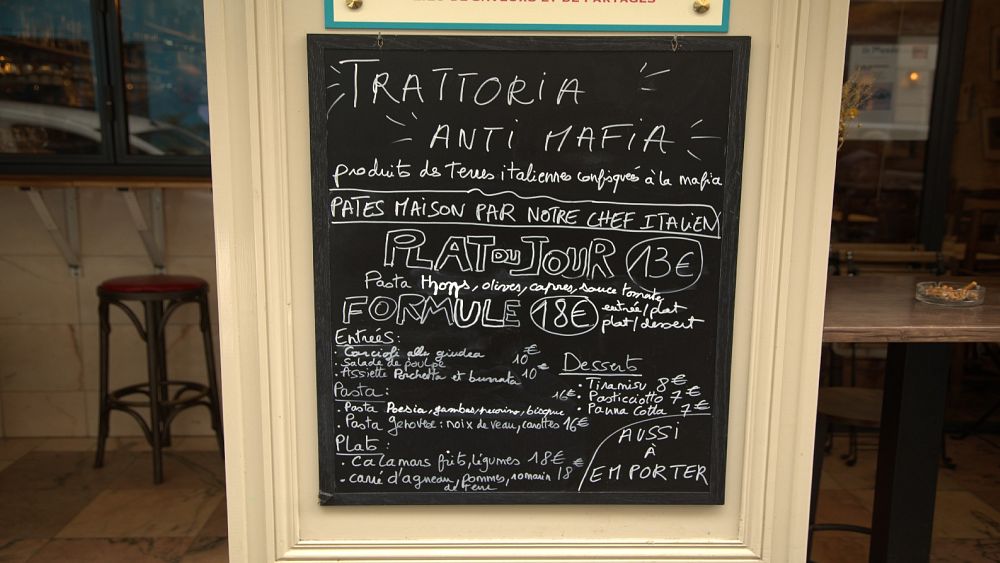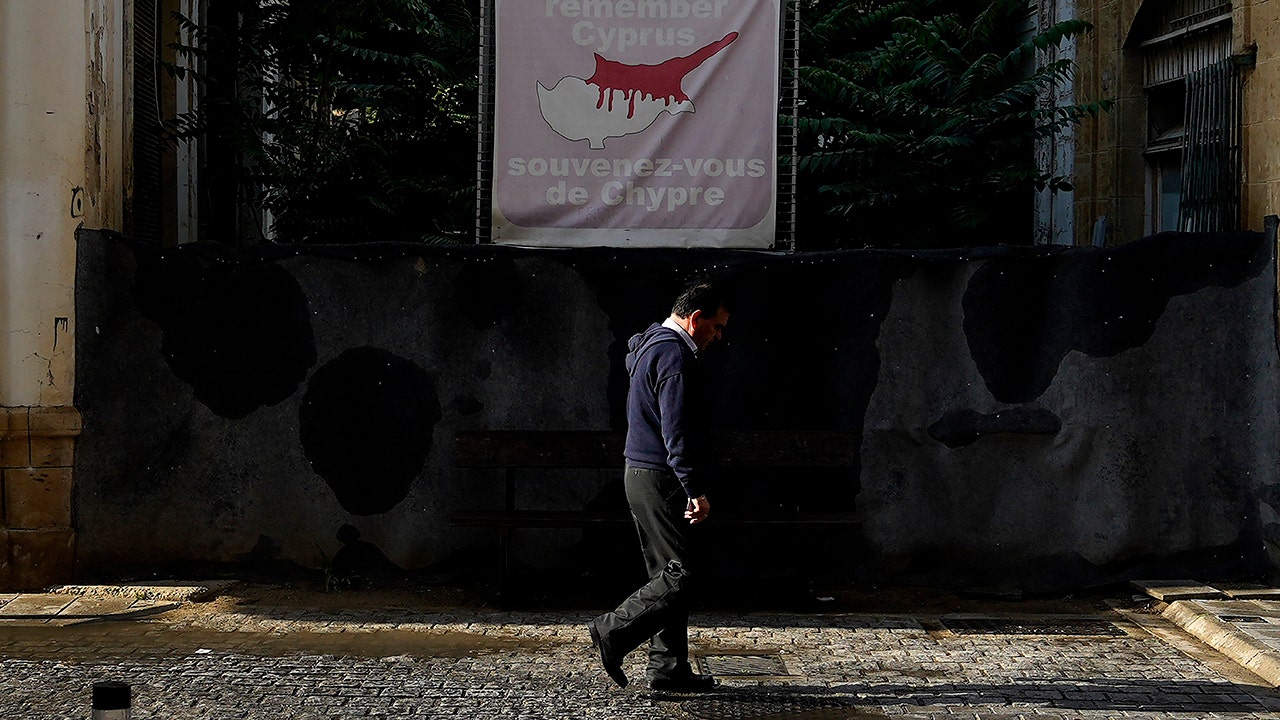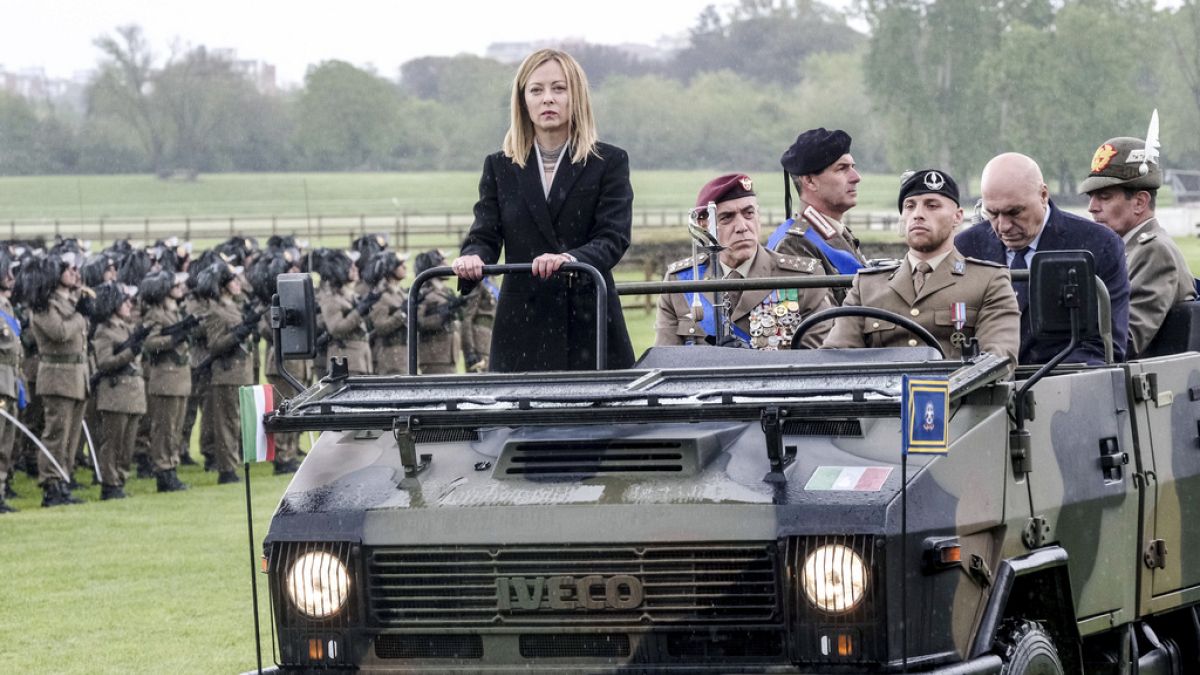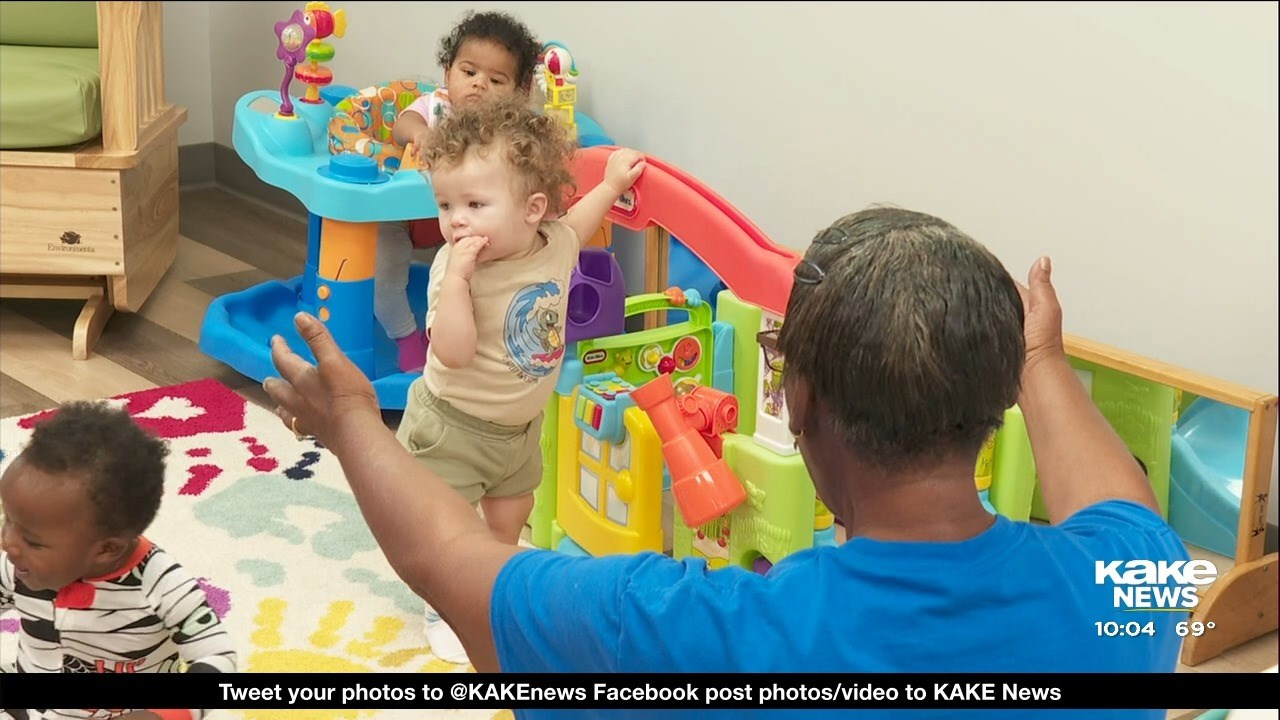World
More EU countries reclaim land from the mafia. Here’s how they use it

Italy was the first to pass a law to allow the reallocation of land for social purposes. Since then, several other countries have followed suit.
La Poesia looks much like a normal Italian trattoria. Bottles of Sicilian red wine line the rustic brick walls, tables are set with olive oil from Puglia, and gourmet classics like pasta all’amatriciana are served up in ceramics made in the Amalfi Coast.
But while the dishes at this Parisian restaurant taste just like you would expect, the ingredients used to make them have an unusual origin: much of the produce was grown on land in Italy seized from the mafia.
“We want this to be more than a restaurant,” says Baptiste Gaud, manager of La Poesia, which has also hosted music concerts, film screenings, and political talks since it opened in November 2022. “It is a gastronomic, ethical and cultural place.”
La Poesia, which sources much of its food and drinks from the Italian nonprofit Libera Terra (Free Land), is part of a burgeoning movement across Europe to reclaim and reuse land and goods once possessed by organised crime groups.
While governments worldwide have long enacted policies allowing the confiscation of criminal assets, only movable goods like cars and jewellery could be sold by the state, whereas land, difficult to legally reassign, has often been left unused.
But in 1996, Italy passed a pioneering law to allow the reallocation of land for social purposes.
“Governments were focused on selling confiscated goods,” says Tatiana Giannone, a specialist in confiscated assets for Libera, a civil society coalition that campaigned for the law. “But increasingly there is a move to reuse land and property, and to put it to use in the public good. Italy has really been the pioneer on this.”
Addiction treatment centre, nautical school …
According to a report published in March by Libera, more than 19,000 properties have been confiscated from groups like the Sicilian Mafia, the Calabrian ‘Ndrangheta and the Neapolitan Camorra to date, and there are 991 nonprofits running social reuse projects across the country. In Castel Volturno, near Naples, a cooperative is making mozzarella; in Genoa, a nonprofit runs a bicycle repair shop, and in Rome, there’s a jazz music venue, among many other examples.
But increasingly other European countries have begun to implement social reuse of confiscated property. As many as 19 nations have to some degree, including Spain, Belgium, Bulgaria, Romania and the Netherlands, according to a report by CHANCE, a European civil society network. “Social and public reuse of confiscated assets is one of the most important political and social innovations of recent years,” it concluded.
Near Alicante, in Spain, a villa confiscated from a drug trafficker has become an addiction treatment centre. In the Dutch city of Rotterdam, a boat once used to transport drugs is now a nautical school. In France, an apartment in Paris seized from an infamous gambler is now managed by a charity for victims of trafficking. And in Romania, four properties provide temporary shelter for vulnerable people.
At the European level, the work was started in 2013 when the European Parliament called on member states to consider “confiscation models” for assets derived from criminal activities and encouraged “the use of criminal assets for social purposes.” Then in May 2022, the European Commission presented a proposal for a new directive requiring member states to “consider the use of confiscated properties for public or social purposes.”
Advocates argue that the social reuse of confiscated goods not only makes use of land that would otherwise lie unused, but that it effectively engages communities against organised crime, making the anti-mafia efforts more resilient in the long term.
“Social reuse puts citizens at the heart of the fight against criminality,” says Fabrice Rizzoli, president of Crim’HALT, a French anti-mafia nonprofit that played a key role in the French government passing a law in 2021 for social reuse. “Before only the state had the right. But this changes our mentality. It’s up to us, the citizens.”
‘Still so far to go’
Yet progress has been slow. According to Europol, the EU’s agency for law enforcement cooperation**,** there are more than 5,000 organised crime groups operating across the bloc. Their illegal activities generate an estimated €110 billion a year. However, it found in 2021 only about 2% of these proceeds are frozen and 1.1% are confiscated.
“Things have moved fantastically,” says Anna Sergi, an expert in anti-mafia efforts in Europe and professor of criminology at the University of Essex. “But there is still so far to go. It can take years for an asset to be put to reuse. We need agencies to be set up to run and facilitate this process.”
Part of the issue has been the increasingly cross-border nature of organised crime in Europe, making it more difficult for authorities to prosecute. Some 7 out of 10 of criminal organisations in Europe operate in multiple states. But progress on that front was made in 2020, when legislation from the European Commission came into force allowing EU countries to mutually recognise confiscation orders.
“That was a success,” adds Sergi. “In the EU, you have borderless crime. It comes with the territory. So we need to have a fully European investigative model.”
But for now, projects like La Poesia are helping, one forkful of spaghetti at a time, to take power away from criminal groups across Europe and put it back in the hands of the people.
“The reaction has been so positive,” says Gaud. “Our customers love the idea when we explain our story and they are curious to know more.”

World
TVLine Items: Conan O’Brien Must Go Renewed, Harry Potter Baking Competition and More

ad
World
Chances of Cyprus peace talks restart look dimmer as Turkish Cypriot leader sees no common ground

Chances of restarting formal talks to mend Cyprus’ decades-long ethnic division appeared dimmer Wednesday as the leader of the breakaway Turkish Cypriots told a U.N. envoy that he saw no common ground with Greek Cypriots for a return to negotiations.
Turkish Cypriot leader Ersin Tatar said that he conveyed to the U.N. secretary general’s personal envoy, María Ángela Holguín Cuéllar, that talks can’t happen unless separate Turkish Cypriot sovereignty in the island’s northern third first gains the same international recognition as the Cyprus republic in the Greek Cypriot south.
CYPRUS’ PRESIDENT CALLS ON EU TO TAKE ACTION AGAINST INFLUX OF SYRIAN REFUGEES FROM LEBANON
Tatar was quoted by Turkish Cypriot media as saying that a permanent Turkish military presence coupled with military intervention rights are prerequisites to any peace deal, despite Greek Cypriot attempts to “remove Turkey” from the settlement equation.
Tatar also expressed irritation with Holguín’s contacts with civil society groups that support an accord that would reunify Cyprus as a federation made up of Turkish Cypriot and Greek Cypriot zones, in line with a U.N.-endorsed framework.
A man walks across the U.N buffer zone in front of a blocked road as a banner shows the Cyprus island divided, the Turkish occupied area at the north and Cyprus republic at the south, in divided capital Nicosia, Cyprus, on Wednesday, May 15, 2024. Chances of restarting formal talks to mend Cyprus’ decades-long ethnic division appeared dimmer as the leader of the breakaway Turkish Cypriots told a United Nations envoy that he saw no common ground with Greek Cypriots for a return to negotiations. (AP Photo/Petros Karadjias)
The majority of Greek Cypriots reject a deal that would formalize a partition through a two-state deal, the permanent stationing of Turkish troops on the island, the right for Turkey to militarily intervene as well a demand for a Turkish Cypriot veto on all federal-level government decisions.
The Turkish Cypriot leader’s remarks don’t waver from a line that he’s consistently kept since his 2022 rise to power. But the fact that he remains unyielding despite four months of Holguín’s shuttle diplomacy doesn’t bode well for a talks restart.
Holguín was appointed at the start of the year to determine what the chances are of resuming formal talks seven years after the last major push for a deal collapsed amid much acrimony.
An agreement has defied numerous, U.N.-facilitated rounds of talks since 1974 when the island was cleaved along ethnic lines following a Turkish invasion preceded by a coup aimed at uniting the island with Greece. Only Turkey recognizes a Turkish Cypriot declaration of independence, and although Cyprus is a European Union member, only the south enjoys full membership benefits.
Holguín has refrained from speaking at length about her contacts over the last few months, but she noted in an interview with Kathimerini newspaper that it was up to the leaders to “listen to the people” and that she had been surprised at Tatar’s rejection of her proposal for a three-way meeting with Cypriot President Nikos Christodoulides.
Holguín will “soon” prepare a report for U.N. Secretary-General António Guterres about her findings over the last five months, according to U.N. deputy spokesman Farhan Haq.
Christodoulides struck a more upbeat note on Wednesday, saying that efforts for a resumption of talks continue and that time should be given for diplomacy to work.
World
Possible to cooperate with 'some' far-right personalities, says Michel

Michel’s comments at the Copenhagen Democracy Summit on Tuesday put him at odds with his own liberal family, Renew Europe, which is firmly opposed to cooperation with either ECR or ID.
It is possible to cooperate with “some” far-right personalities, says European Council President Charles Michel.
Michel made the comment at the Copenhagen Democracy Summit on Tuesday when he was asked about the upcoming elections to the European Parliament, where hard- and far-right parties are projected to enjoy a significant boost in representation.
“The question in the European Parliament will be: What are the political parties ready to cooperate (with), to collaborate to support Ukraine, to defend the democratic principles and to make the EU stronger?” Michel said on stage.
“If I’m observing the reality of some of those political parties that you qualify as the ‘far right,’ the reality is sometimes a bit more balanced in some of those personalities within those parties – personalities with whom it is possible to cooperate because they can share the same goals, the same views on those topics,” he went on.
“And with some others, in my opinion, it’s not possible to cooperate.”
Michel did not mention any party or personality by name, but his remarks seemed to refer to Italian Prime Minister Giorgia Meloni, whose three-party coalition has been described as the most right-wing in the country’s history.
Due to its strident Eurosceptic tone, Meloni’s campaign for Italy’s leadership had sent alarms ringing in Brussels. However, upon coming into office, the premier baffled critics by adopting a more pragmatic approach to EU politics, proving constructive on key issues such as support for Ukraine and migration reform, while remaining opposed to the Green Deal.
Meloni and her allies from the European Conservatives and Reformists (ECR) group, including Poland’s Law and Justice (PiS) and Spain’s Vox, are seeking to secure a sizeable share of seats in the next Parliament and further tilt the agenda to the right.
The shift has raised questions over how much the traditional mainstream parties are willing to accommodate, or even align with, the demands from the extreme right. In recent years, the centre-right European People’s Party (EPP) has struck working arrangements with ECR forces in Italy, the Czech Republic, Sweden and Finland.
Last week, Croatian Prime Minister Andrej Plenković, a prominent EPP politician, signed a new deal with the ultra-nationalist Homeland Movement, a party that intends to join the far-right Identify and Democracy (ID) group in the European Parliament.
Plenković’s move revived concerns about the normalisation of the far right, a phenomenon that progressives say threatens European democracy and integration.
Focus on the substance
For Michel, though, what matters is the results.
“What is important, in my opinion, is the policy, is the substance, and what are the decisions we are making,” Michel said in Copenhagen.
“I don’t want to give one concrete example, but I remember that sometimes in the (European) Council when there were elections in one member state, there were some doubts and some worries,” he added, in another apparent reference to Meloni.
“And then we have seen that it was possible to work with the leadership of countries, including when in one coalition you have some political parties more oriented to the right.”
Michel’s comments put him at odds with his own liberal family, Renew Europe, which is firmly opposed to cooperation with either ECR or ID.
Last week, Renew Europe joined the socialists and the greens in a statement condemning growing violence against lawmakers, activists and journalists, which they linked to the rise in support for far-right parties.
“For our political families, there is no ambiguity: We will never cooperate nor form a coalition with the far right and radical parties at any level,” the statement said.
Michel, who will leave office later this year after completing his mandate at the top of the European Council, said he was “confident” that centrist parties would continue to play an “essential role” in the EU’s future.
“I know that this is usual a few weeks before the elections, that we are worried and that we think that the worse will come,” he said.
“I am a bit more calm. I am a bit more serene.”
-

 Politics1 week ago
Politics1 week agoHouse Dems seeking re-election seemingly reverse course, call on Biden to 'bring order to the southern border'
-

 World1 week ago
World1 week agoStand-in Jose Raul Mulino wins Panama presidential race
-

 News1 week ago
News1 week agoCompass Direct LLC’s 2024 Registration in North Carolina
-
News1 week ago
UCLA to resume in-person classes after Gaza protest crackdown
-

 World1 week ago
World1 week agoTech compliance reports, Newsletter
-

 News1 week ago
News1 week agoColumbia University cancels its main commencement ceremony after weeks of turmoil
-

 News1 week ago
News1 week agoMan, 75, confesses to killing wife in hospital because he couldn’t afford her care, court documents say
-

 World1 week ago
World1 week agoPentagon chief confirms US pause on weapons shipment to Israel




















